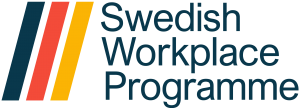Covid-19 response
Responding to COVID-19
The COVID-19 pandemic is causing significant disruptions globally and threatening the livelihood of millions of people. SWP is mobilising its networks to provide information on how businesses, employers’ organisations, workplace committees, and unions are handling the crisis. Since the outbreak, SWP has organised webinars in which companies, unions and other partners have shared their best practices for strategic measures taken to minimise disruption in productivity and ensure health and safety at the workplace.
Below, you will also find several focus areas for handling crisis situations, such as: how to manage stigma, how to provide access to treatment, and the dissemination of information as a preventative mechanism.
Radio session about coping with stress during COVID-19
SWP contributed to a radio session in Zimbabwe with various experts on how to deal with consequences of COVID- 19.
The radio session shared coping mechanisms for COVID -19 related stress and how best to administer psychosocial support during this time. Dr. Chirisa, a leading psychologist in the country, provided additional material for how employers can support their employees’ mental health during the COVID-19 crisis.

Consider vulnerable groups
Employers must take into consideration vulnerable groups and establish support for these individuals. They need to be mindful of those who have a history of abusive relationships because home is not a safe space. Where possible, employers should establish special safe places where these individuals can go to access information channels such as websites, radio shows or online support groups for their immediate safety.
Considerations must also be made for those who have disabilities, the elderly, pregnant women and for those with other underlying immune-suppressing medical conditions.
Establishing toll free hotlines with well-equipped staff cannot be overemphasized. Likewise, online platforms can also be established with experts to ensure that employees can access the help they need during COVID-19. Employers are encouraged to think outside the box to protect the health and wellness of all employees.
What employees can do to avoid stress
- Remain calm and ensure that they are able to access information from trusted sources.
- Follow the protective guidelines provided by WHO and their local governments to ensure correct and consistent use of PPE.
- Be self-aware of any physical or mental changes and seek help immediately if they recognise any changes.
- Utilize resources such as the psychosocial support network directory and get help when needed.
- Check up on family, friends and colleagues as it is important to stay socially connected to maintain the feeling of belonging to a community during COVID-19.
What management can do during the crisis
- Promote trust by communicating
Employers can have regular and clear-cut communication with all staff to reduce anxiety, which may be caused by both external and internal factors. - Provide psychosocial support
Employers can include psychosocial wellness support as an aspect of holistic wellness. This support can include referrals to psychologists, toll-free hotlines for psychological services, and a directory of service providers who are available to support employees during COVID -19. - Promote social dialogue
Employers must be mindful to keep an open line of communication with their workforce regarding expected changes post COVID- 19. These changes, may possibly become the new reality and could affect the world of work and business operations.
Social dialogue plays an important role in crisis management
Social Dialogue is defined as, “Negotiation, consultation, or simply the exchange of information among representatives of governments, employers and employees, at a regional, sectorial and/or workplace level.”
The key advantage of adopting a social dialogue approach is the promotion of human rights within the workplace. Social dialogue is instrumental in addressing the concerns of the employer and the employee so that challenges and solutions can be handled jointly.
Within the SWP Approach, the workplace committee becomes an effective crisis management tool due to its clear structure, representative composition and the mandate to come up with measures to address the impact of the crisis on the company.
Workplace committees are the bridge by which employers and employees can have open discussions about the workplace. These committees can engage with management and employees to ensure a collaboration focused on mitigating the impact of COVID-19. The committees are key partners at the workplace for disseminating information to curb the spread of the virus.

Companies’ stories about using social dialogues during COVID-1
The SWP webinar in April 2020 included 48 participants from Sub-Saharan Africa. These companies shared their experience on the practical implementation and promotion of social dialogue between management and employees.
Scania Kenya
Githaiga Kamwenji (HR Director Scania East Africa) shared that they have established crisis committees made up of both management and employees tasked with establishing local solutions for promoting business continuity. The committee has also been a key tool for ensuring discussions around concerns related to labour issues that have arisen due to the COVID-19 pandemic. These concerns include to sick leave, the possibility of shift work, introduction of short time, as well as possible retrenchment in some cases as businesses have been recording a slump in productivity adjustments. These factors have contributed to making social dialogue a crucial part of the running of day to day business.
Sodeico Group DRCA
A case study from the DRC demonstrated the positive impact of fostering partnerships beyond the workplace; thus resulting in an environment in which strategies, innovations and solutions can be shared. As shared by Djo Moupondo (Executive Director of Sodeico Group), they have established partnerships with suppliers, customers, and the government, which has secured business continuity and ensured that employees are safeguarded.

Reliable information for health and safety policies is key
A NIR/SWP radio session on OSH came at a crucial time when the government of Zimbabwe was in the process of reopening workplaces. The session was an appreciated initiative as it addressed how both employers and employees could resume work in a safe but still proactive manner. Emphasis was put on the importance of generating workplace engagement through social dialogue.
Employers were encouraged to fully execute their duty of care by providing employees safe workplaces by ensuring that all measures were put into place in accordance with WHO guidelines and state laws. This also included adhering to OSH requirements to protect employees and prevent further virus spread.

Steps business should take in response to COVID-19
The importance of COVID-19 as a workplace issue needs to take into consideration how the different levels of risk need to be addressed for every workplace station to ensure that there is adequate protection and prevention. These different levels of risks are important to note as they expose not only the individual, but all company staff, and carry staggering repercussions for the workplace, employees families and their communities.
Five lessons learned from workplace programmes
The SWP model is based on upholding the human rights of employees at the workplace. The below rights can be assured through workplace committees and implementation of policies.
The right to quality care
The right to treatment
The right to confidentiality
The right to information
The right to be treated with dignity
The right not to be discriminated for whatever reasons
The cooperation between management and employees in addressing the impact of COVID-19 is fundamental, and herein lies the success of the SWP model.

